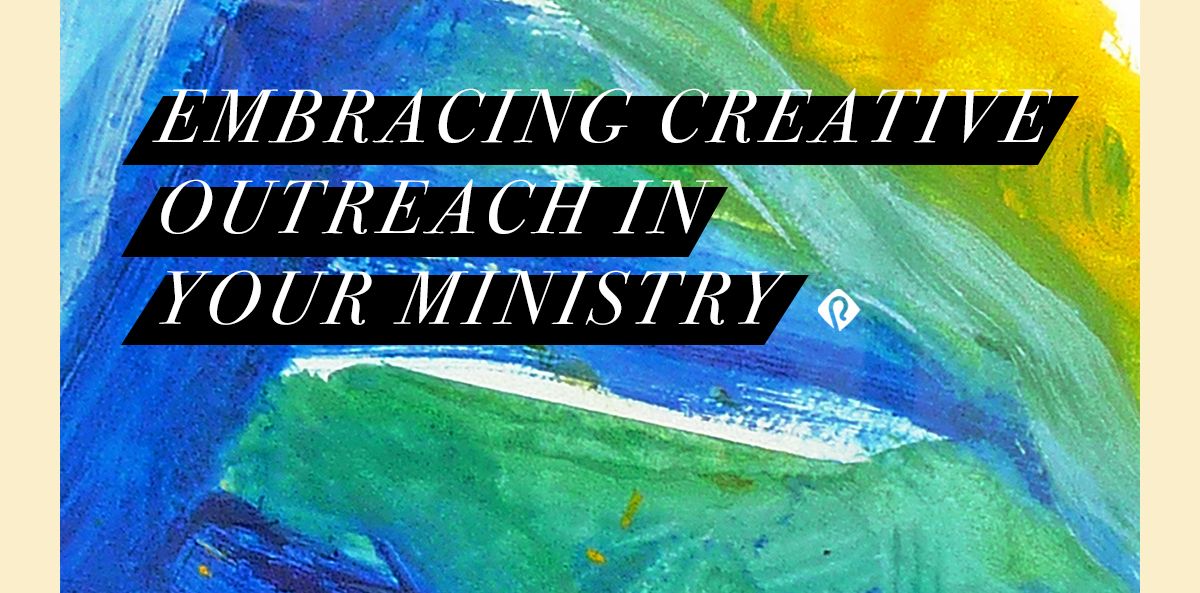Evangelism
10 Lessons Churches Should Learn from the Apple Store

What follows below is a post from Guy Kawasaki who was for many years a “chief evangelist” for all things Apple and who continues to write about excellence in design, marketing, innovation, and retail. In this piece he summarizes some key insights from a book about the phenomenal retail success of the Apple store. As I was reading Guy’s post, I couldn’t help but think about how many of these same insights might apply to the ways we think about church.
So I’ll place the whole of the original post below so that you can read Guy’s insights. But I’ll also comment (in italic) after each section, offering a “translation” intended to suggest how we might apply this to our congregational lives. They won’t always be a perfect fit – like any translation, there are always some things that get lost. Still, I found it a helpful exercise and hope you do, too. So please feel free to add your thoughts and suggestions in the comments and if you find the post helpful share it with others.
One brief note before getting started: some of us may be uncomfortable using the language of retail stores to describe the church, particularly if we start referring to those who come to church as customers. That’s a fair concern. Church is not one more place to exercise our habits for consumption, and worship isn’t meant to be just another shopping experience. At the same time, both retail stores and churches care about the people who walk in their doors and should give attention to the kind of experience they want those people to have. So noting that the two aren’t the same, we still might learn from one to help us do the other more faithfully.
10 Things You Can Learn From the Apple Store, by Guy Kawasaki.
My friend, Carmine Gallo, has written a book called The Apple Experience: Secrets to Building Insanely Great Customer Loyalty. The Apple Store is the most profitable retailer in America, generating an average of $5,600 per square foot and attracting more than 20,000 visitors a week.
In the decade since Steve Jobs and former head of retail, Ron Johnson, decided to reimagine the retail experience, the Apple Store not only reimagined and reinvented retail, it blew up the model entirely and started from scratch. In his research for The Apple Experience, Carmine discovered ten things that the Apple Store can teach any business in any industry to be more successful:
1. Stop selling stuff. When Steve Jobs first started the Apple Store he did not ask the question, “How will we grow our market share from 5 to 10 percent?” Instead he asked, “How do we enrich people’s lives?” Think about your vision. If you were to examine the business model for most brands and retailers and develop a vision around it, the vision would be to “sell more stuff.” A vision based on selling stuff isn’t very inspiring and leads to a very different experience than the Apple Retail Store created.
Translation: Stop worrying about membership and about whether people will join – the church’s equivalent of selling stuff. Instead, ask people why they’re here, why they’ve come, what they’re looking for, and how this congregation can aid them in their walk with God.
2. Enrich lives. The vision behind the Apple Store is “enrich lives,” the first two words on a wallet-sized credo card employees are encouraged to carry. When you enrich lives magical things start to happen. For example, enriching lives convinced Apple to have a non-commissioned sales floor where employees feel comfortable spending as much time with a customer as the customer desires. Enriching lives led Apple to build play areas (the “family room”) where kids could see, touch and play on computers. Enriching lives led to the creation of a “Genius Bar” where trained experts are focused on “rebuilding relationships” as much as fixing problems.
Translation: Strengthen faith. Set your congregation the vision of imagining that every aspect of their life – worship, education, facilities, newsletter, and all the rest – is intended to help people strengthen their faith and grow in their lives as disciples. What would it mean if before each action, decision, or vote you asked the question, “How will this help strengthen the faith of the people who come here?”
3. Hire for smiles. The soul of the Apple Store is in its people. They are hired, trained, motivated and taught to create magical and memorable moments for their customers. The Apple Store values a magnetic personality as much, if not more so, than technical proficiency. The Apple Store cares less about what you know than it cares about how much you love people.
Translation: Statistics show that visitors to churches make up their minds within the first two minutes whether they’ll be back (way before they hear the sermon!). The most important factor? Whether they feel welcome and believe people are genuinely glad they’re there. Not everyone has the gift of hospitality – of making someone feel incredibly welcome – but lots of people do. Find these people, name their gift (not everyone realizes they have this gift), and get them out front on Sunday morning to welcome everyone who walks in the door.
4. Celebrate diversity. Mohawks, tattoos, piercings are all acceptable among Apple Store employees. Apple hires people who reflect the diversity of their customers. Since they are more interested in how passionate you are, your hairstyle doesn’t matter. Early in the Apple Store history, they also learned that former teachers make the best salespeople because they ask a lot of questions. It’s not uncommon to find former teachers, engineers, and artists at an Apple Store. Apple doesn’t look for someone who fits a mold.
Translation: Just how welcoming can we be? Really. Have we created a place where our kids and their friends feel welcome even if they’re dressing differently than when we were young? Have we created a place where neighbors who may look different, or have different levels of education, or dress differently feel welcome? Look around your congregation this Sunday – does everyone look the same? Then maybe we need to work harder at making room for all kinds of different people to find their place in our congregation.
5. Unleash inner genius. Teach your customers something they never knew they could do before, and they’ll reward you with their loyalty. For example, the Apple Store offers a unique program to help people understand and enjoy their computers: One to One. The $99 one-year membership program is available with the purchase of a Mac. Apple Store instructors called “creatives” offer personalized instruction inside the Apple Store. Customers can learn just about anything: basics about the Mac operating system; how to design a website; enjoying, sharing, and editing photos or movies; creating a presentation; and much more. The One to One program was created to help build customers for life. It was designed on the premise that the more you understand a product, the more you enjoy it, and the more likely you are to build a long-term relationship with the company. Instructors are trained to provide guidance and instruction, but also to inspire customers, giving them the tools to make them more creative than they ever imagined.
Translation: Everyone in your congregation has something of value to offer your congregation. (Now, say this 5x!) Moreover, there is no single factor that contributes more powerfully to someone feeling connected to an organization than feeling that his or her gifts are appreciated and will be used. So when something needs to get done at the church, don’t call any of the first 3 people that come to mind. Call the 4th, 5th, or 6th person, because they can do it too, and, moreover, they need to have their gifts put to use. Imagine if the church was a place where everyone from our youth to our retirees felt that their creative gifts were not just valued but were vital to the health of the congregation.
6. Empower employees. I spent one hour talking to an Apple Store specialist about kids, golf, and my business. We spent about ten minutes talking about the product (a MacBook Air). I asked the employee whether he would be reprimanded for spending so much time with one customer. “Not at all,” he replied. “If you have a great experience, that’s all that matters.” Apple has a non-commissioned sales floor for a reason—employees are not pressured to “make a sale.” Instead they are empowered to do what they believe is the right thing to do.
Translation: If it matters, don’t let the pastors do it! Really. How else will our people be equipped and empowered to read the Bible with confidence, to connect their faith to their daily lives, and to share their faith with others if the only persons who ever do these kinds of things are the pastors. We learn by doing, so if it matters, invite everyone to do it! (Okay, so pastors can do some of this too, but if it matters, don’t let them be the only ones who do it!)
7. Sell the benefit. Apple Store specialists are taught to sell the benefit behind products and to customize those benefits for the customer. For example, I walked to the iPad table with my two young daughters and told the specialist I was considering my first iPad. In a brilliant move, the specialist focused on my two daughters, the ‘secondary’ customer who can influence a purchase. He let the girls play on separate devices. On one device he played the movie, Tangled, and on the other device he brought up a Disney Princess coloring app. My girls were thrilled and, in one memorable moment, my 6-year-old turned me to and said, “I love this store!” It’s easy to see why. Instead of touting “speeds and feeds,” the specialist taught us how the device could improve our lives.
Translation: Practice talking about what we love about this congregation. Many of us may feel uncomfortable with the word “evangelism,” having had too many encounters with someone who wanted to know if we “knew where we’d go after dying.” But can’t we practice talking about what we really enjoy about this congregation, about why we come out on Sunday mornings, about what we receive from our community of faith. If we practice this in church, it may be easier to share outside of church and won’t, I promise you, feel like we’re stuffing our religion down someone else’s face.
8. Follow the steps of service. The Apple Store teaches its employees to follow five steps in each and every interaction. These are called the Apple five steps of service. They are outlined by the acronym A-P-P-L-E. They are: Approach with a customized, warm greeting. Probe politely to understand the customer’s needs. Present a solution the customer can take home today. Listen for and address unresolved questions. End with a fond farewell and an invitation to return.
Translation: Take hospitality seriously. Invite folks to practice welcoming people at church. And then practice inviting people to church. If it’s sincere, and if you always respect the persons with whom you are in conversation, this is does not have to be manipulative. But practice is important because we’re not used to doing this (whether or not you choose an acronym is up to you ).
9. Create multisensory experiences. The brain loves multi-sensory experiences. In other words, people enjoy being able to see, touch, and play with products. Walk into an Apple Store upon opening and you’ll see all the notebook computer screens perfectly positioned slightly beyond 90-degree angles. The position of the computer lets you see the screen (which is on and loaded with content) but forces you to touch the computer in order to adjust it. Every device in the store is working and connected to the Internet. Spend as much time as you’d like playing with the products—nobody will kick you out. Creatives who give One-to-One workshops do not touch the computer without asking for permission. They want you to do it. The sense of touch helps create an emotional connection with a product.
Translation: Are you kidding – church is the original “multi-sensorial experience” – so let’s reclaim that. We’ve got music, and words, and images, and bread and wine, and stained-glass windows, and (lest we forget) actual, physical flesh-and-blood people around us. Let’s keep worship simple, clean, and richly multi-sensorial, inviting a faith that goes deeper than our brains to reach the whole person.
10. Appeal to the buying brain. Clutter forces the brain to consume energy. Create uncluttered environments instead. The Apple Store is spacious, clean, well-lit, and uncluttered. Cables are hidden from view and no posters on placed on the iconic glass entrances. Computer screens are cleaned constantly. Keep the environment clean, open, and uncluttered.
Translation: What are we doing – in our meetings, in Sunday School, in worship – that we don’t need to do? How can our space and our activities be simplified? Another question to ask before each decision: Is there a simpler way to do this?
The three pillars of enchantment are likability, trustworthiness, and quality. Apple’s engineers take care of quality, and the Apple Store experience personifies likability and trustworthiness. I’ve never left an Apple store without being enchanted—in fact, I seldom leave the Apple Store on University Avenue in Palo Alto without being enchanted and buying something too! Resisting Carmine’s book, like resisting an Apple Store, is futile, so just get it here: The Apple Experience: Secrets to Building Insanely Great Customer Loyalty
(HT: David Lose)















